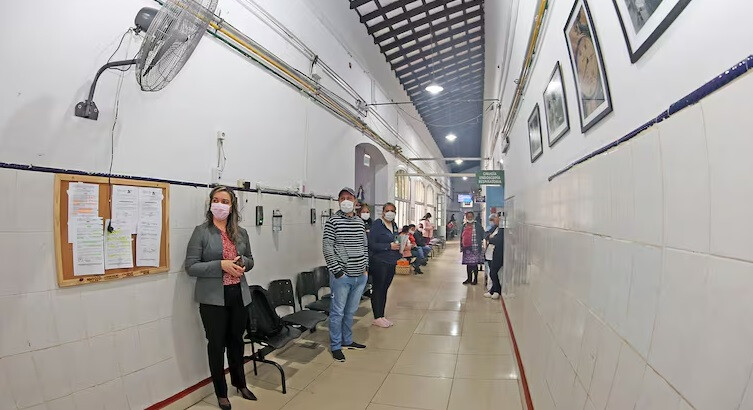
The Paraguayan Ministry of Health has issued a nationwide alert due to a significant increase in respiratory illnesses, driven by the rapid spread of rhinovirus and the SARS-CoV-2 virus (COVID-19). The surge in hospital visits and admissions has placed considerable strain on the healthcare system.
'Alarming' Rise in Flu-Related Cases and Hospitalizations
In the first week of March, Paraguay reported 13,014 flu-related consultations, a 12% increase from the last week of February. This surge has been described as reaching "alarming levels." The number of patients hospitalized with severe acute respiratory infections reached 1,503, with 137 new admissions in the first week of March alone.
Elderly individuals aged 60 and over account for 33% of hospitalizations, highlighting the need for heightened health precautions among this age group. A significant number of pediatric patients are also affected, emphasizing the importance of protecting vulnerable children.
Rhinovirus, COVID-19, and Other Respiratory Viruses Fueling the Outbreak
Rhinovirus and COVID-19 have been identified as the primary causes of recent hospitalizations. Other respiratory viruses, including parainfluenza, adenovirus, influenza B, metapneumovirus, and respiratory syncytial virus (RSV), are also circulating.
In the first week of March, 206 new COVID-19 cases were reported nationwide, a 46% increase from the previous week. Notably, 65% of these cases are concentrated in the Central Department and Asunción, requiring extra vigilance in these areas. Currently, 26 patients are hospitalized with COVID-19, with one in intensive care. Elderly individuals (31%) and children under 5 (23%) make up a significant portion of hospitalized cases.
Prevention is Key Against Rhinovirus and COVID-19
Rhinovirus: The most common cause of the common cold, symptoms include runny nose, congestion, sore throat, cough, and mild fever. While most cases resolve naturally, complications can arise in immunocompromised individuals and those with chronic illnesses.
SARS-CoV-2 (COVID-19): A respiratory virus causing symptoms such as fever, cough, sore throat, muscle aches, fatigue, and loss of taste or smell. Severe cases can lead to pneumonia, respiratory distress, and death.
Adhere to Preventive Measures and Practice Good Hygiene
Wash hands frequently and cover mouth and nose when coughing or sneezing.
Avoid crowded places and ensure proper ventilation.
Vaccination is crucial, especially for the elderly and those with chronic conditions.
While COVID-19 is classified as a Class 4 infectious disease in South Korea, vaccination is still recommended for high-risk groups.
The Paraguayan Ministry of Health strongly urges the public to adhere to respiratory illness prevention guidelines and seek immediate medical attention if symptoms develop.
[Copyright (c) Global Economic Times. All Rights Reserved.]






























